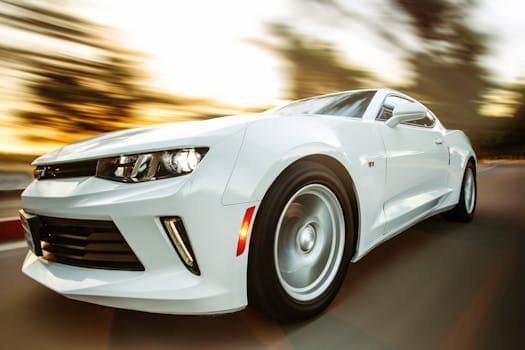The Psychology of Speed: Why Fast Cars Still Matter in an AI World
When the automobile industry first started in the late 19th century, the main focus was on creating faster and more efficient modes of transportation. Over time, the obsession with speed grew, and today, we have cars that can reach record-breaking speeds within seconds. But with the rise of artificial intelligence (AI) and self-driving cars, many have questioned the relevance of fast cars in today’s world. However, the psychology of speed remains deeply ingrained in human nature, and fast cars still hold a special place in our hearts. In this article, we will explore the psychology of speed and why fast cars continue to matter in an AI world.
The Need for Speed
From the rush of adrenaline to the sense of freedom and control, there is no denying that humans are drawn to speed. It is a fundamental aspect of our nature, and it has been since the beginning of time. Our ancestors chased their prey and raced with each other for survival. Today, we may not have to hunt for our food, but the need for speed still exists within us.
Fast cars have always been a symbol of power, success, and sophistication. The desire to possess the fastest car on the road is not just about reaching a destination quickly, but it is also about the experience and the thrill that comes with it. In a world where everything is fast-paced, fast cars provide an escape and a sense of control in a constantly changing environment.
The Role of Technology
The evolution of technology has played a significant role in the development of fast cars. With advancements in engineering, we have seen cars that can go from 0 to 60 miles per hour in a matter of seconds. The implementation of AI technology has also made cars smarter and more efficient, increasing their speeds and performance.
However, with the emergence of self-driving cars, some may argue that the need for speed is no longer relevant. But even with the rise of AI technology, fast cars continue to hold a special place in our hearts. The thrill of pushing the limits and being in complete control of a powerful machine is an experience that cannot be replicated by self-driving cars.
The Emotional Connection
While AI technology has made our lives easier and more efficient, it lacks the emotional connection that fast cars provide. Humans have a psychological attachment to objects that symbolize power, success, and freedom. Fast cars have become a status symbol, and they evoke emotions of happiness, excitement, and pride for their owners.
Moreover, the sound, smell, and physical sensations of speed all contribute to the emotional connection we have with fast cars. The exhilarating engine roar, the smell of burning fuel, and the sensation of speed as we accelerate, all add to the overall experience that cannot be replaced by a self-driving car.
The Future of Fast Cars
The future of fast cars may seem uncertain in an AI world, but they continue to hold a significant place in the automotive industry. As technology continues to evolve, we will see even faster, more efficient, and smarter cars in the future. But the psychology of speed will always remain a fundamental aspect of human nature, and fast cars will always hold a special place in our hearts.
Furthermore, with the push towards electric and eco-friendly cars, the concept of speed may shift from being about raw power to being about sustainable and efficient transportation. However, this does not mean that fast cars will lose their charm. The thrill of acceleration, the sense of freedom, and the emotional connection will always be a part of fast cars, regardless of their power source.
Conclusion
In conclusion, the psychology of speed is deeply ingrained in human nature, and fast cars continue to matter in an AI world. They provide a sense of control, freedom, and emotional connection that cannot be replicated by self-driving cars. While the future of fast cars may evolve with advancements in technology, their appeal and relevance will always remain.”










